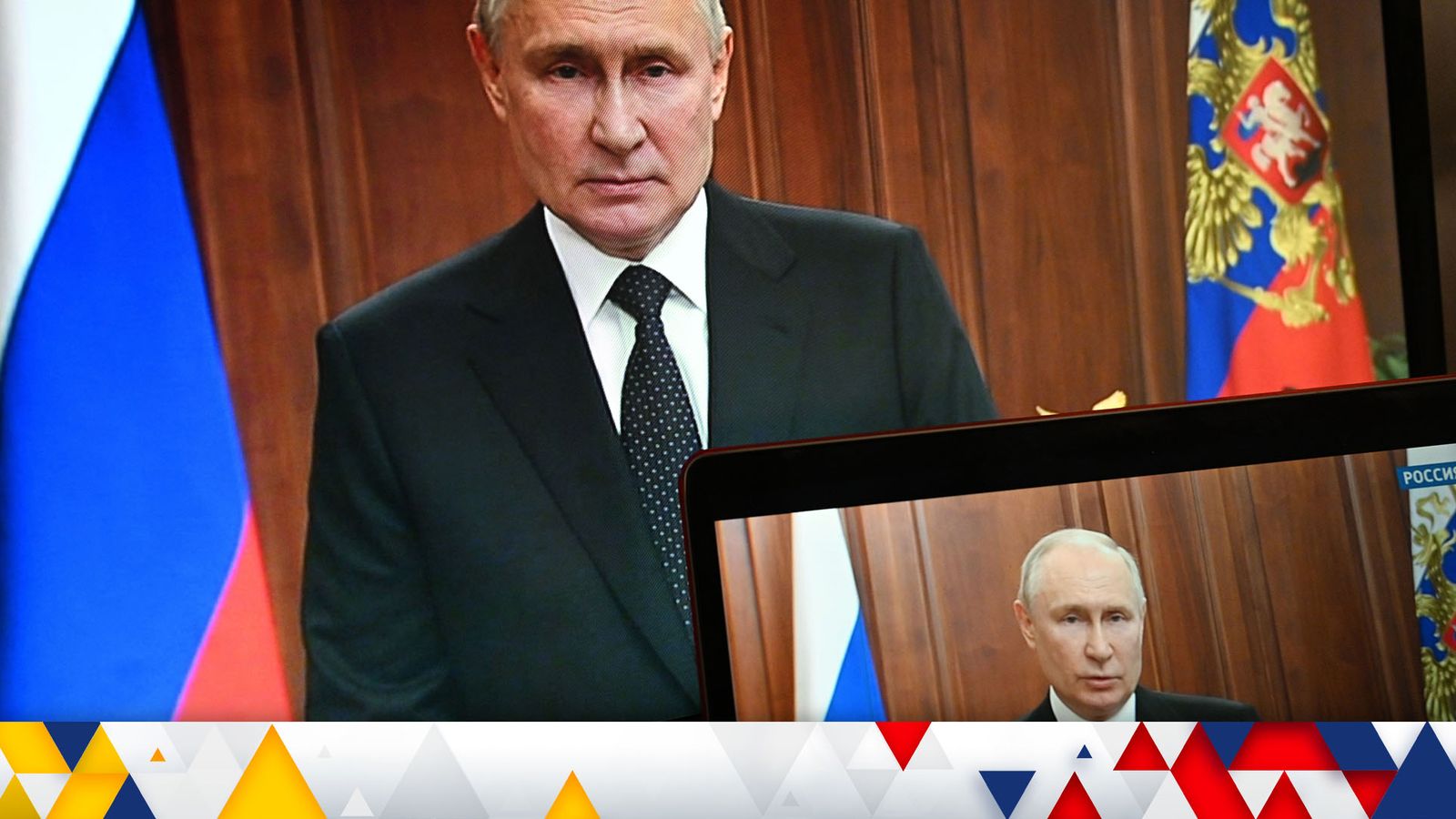US says Wagner coup attempt shows ‘cracks in Russia’s facade’ as Putin and Prigozhin remain silent

America’s top diplomat says that the attempted coup in Russia over the weekend shows “cracks” in the “facade” of Vladimir Putin’s government.
US Secretary of State Antony Blinken described the events as “extraordinary”, recalling that 16 months ago Putin appeared poised to seize Kyiv, but was now forced to defend Moscow from forces led by his former protege.
“I think we’ve seen more cracks emerge in the Russian facade,” Mr Blinken said on NBC’s Meet the Press.
Ukraine-Russia war latest: Wagner leader warned to ‘be careful around open windows’
“It is too soon to tell exactly where they go and when they get there, but certainly we have all sorts of new questions that Putin is going to have to address in the weeks and months ahead.”
The Russian president hasn’t been seen or released any public remarks since Yevgeny Prigozhin stood down his band of mutinous mercenaries.
The Wagner Group boss has also apparently vanished following the weekend’s unrest, although it is believed he has agreed to leave Russia for Belarus as part of a deal brokered by Belarusian President Alexander Lukashenko.
However, there are still no reports of Prigozhin arriving in Belarus.
Many other questions remained unanswered, including whether he would be joined in exile by any of Wagner’s troops and what role, if any, he might have there.
Advertisement
The brief revolt, though, exposed vulnerabilities among Russian government forces, with Wagner Group soldiers under the command of Prigozhin able to move unimpeded into the Russian city of Rostov-on-Don and advance hundreds of miles towards Moscow. The Russian military scrambled to defend Russia’s capital.
Under the deal announced by Kremlin spokesman Dmitry Peskov, along with Prigozhin going to Belarus, which has supported Russia’s invasion of Ukraine, charges against him of mounting an armed rebellion will be dropped.
The government also said it would not prosecute Wagner fighters who took part, while those who did not join the insurrection were to be offered contracts by the Defence Ministry.
“I honestly think that Wagner probably did more damage to Russian aerospace forces in the past day than the Ukrainian offensive has done in the past three weeks,” Michael Kofman, director of Russia studies at the CNA research group, said in a podcast.
Read more:
Prigozhin’s uprising was over too fast to change the course of the war
On streets of Moscow, people seem shaken up by Wagner Group rebellion
How the revolt led by ‘Putin’s Chef’ unfolded
Ukrainians hoped the Russian infighting could create opportunities for their army, which is in the early stages of a counteroffensive to take back territory seized by Russian forces.
Ukrainian President Volodymyr Zelenskyy said he told US President Joe Biden in a phone call on Sunday that the aborted rebellion in Russia had “exposed the weakness of Putin’s regime”.
“Putin is much diminished and the Russian military, and this is significant as far as Ukraine is concerned,” said Lord Richard Dannatt, former chief of the general staff of the British Armed Forces. “… Prigozhin has left the stage to go to Belarus, but is that the end of Yevgeny Prigozhin and the Wagner Group?”
Please use Chrome browser for a more accessible video player
0:57
Wagner leader’s audio message calling off advance
“What we don’t know, but will discover in the next hours and days is, how many of his fighters have gone with him, because if he has gone to Belarus and kept an effective fighting force around him, then he… presents a threat again” to Ukraine, Lord Dannatt added.
NATO leaders concurred with the assessment that the uprising had left President Putin’s authority diminished, with French President Emmanuel Macron saying it had shown the Russian army to be “fragile”.
Lithuanian President Gitanas Nauseda said the brief mutiny had left the Russian leader “naked” but added a note of caution, saying he had increasing concerns about his own nation’s security.
Please use Chrome browser for a more accessible video player
4:59
Putin accuses Prigozhin of treason
It was decided during the meeting that the “threat of illegal activities on the Lithuanian-Belarusian border, including various provocations, is growing”.
The Lithuanian capital Vilnius will play host to this year’s NATO summit next month.